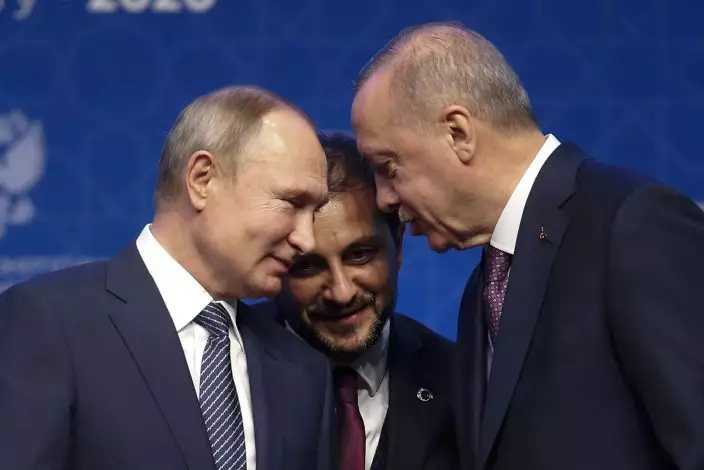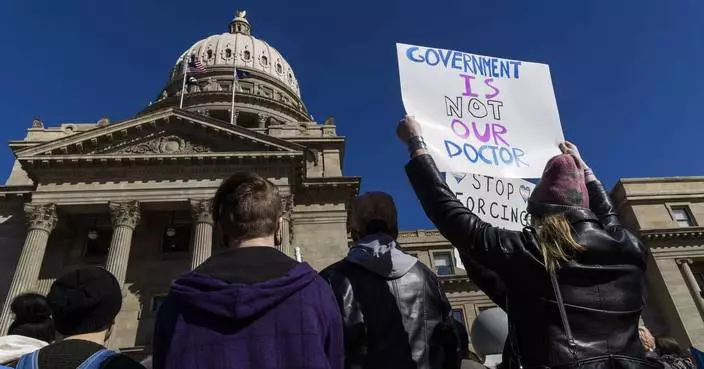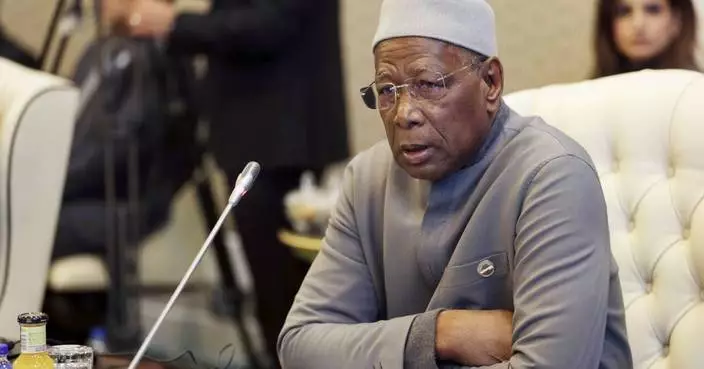A spokesman for one of Libya's rival factions has said its forces will keep fighting for the country's capital after Russia and Turkey called for a ceasefire yesterday.
Spokesman for the self-styled Libyan Arab Armed Forces Ahmed al-Mosmari said in a video statement late Thursday that group's battalions will still try to take control of country's capital Tripoli from ‘terrorist groups.' The armed forces, led by ex-general Khalifa Hifter, have been waging an offensive to try to take the city for months. Russia has helped them with expertise and mercenary fighters.
Both Russia and Turkey have been accused of exacerbating the conflict by giving military aid to its parties. Most recently, the Turkish parliament approved last week the deployment of troops to fight on behalf of the United-Nations supported government in Tripoli.

Turkey's President Recep Tayyip Erdogan, right and Russia's President Vladimir Putin, left, talk during a ceremony in Istanbul for the inauguration of the TurkStream pipeline, Wednesday, Jan. 8, 2020. Man in the centre is an interpreter. The Turkish and Russian presidents called for a cease-fire in Libya, starting midnight Jan. 12, their foreign ministers said. Turkey is supporting the embattled U.N.-recognised government in Tripoli and has begun sending Turkish soldiers for training and coordination, while Russia has backed the rival eastern-based forces of Gen. Khalifa Hifter. (AP PhotoLefteris Pitarakis)
The U.N.-backed government, led by Prime Minister Fayez Sarraj, meanwhile, welcomed the proposed ceasefire. It released a statement late Wednesday expressing its full support for “the resumption of the political process and the elimination of the specter of war."
Libya is currently governed by dueling authorities in the east and in the west. The east-based government is backed by the self-named Libyan Arab Armed Forces, commanded by Hifter. It is supported by the United Arab Emirates and Egypt, as well as France and Russia. The western, Tripoli-based government receives aid from Turkey, Qatar and Italy. Both sides are bolstered by militias which draw from the country's tribal factions.
Turkish President Recep Tayep Erdogan and his Russian counterpart Vladimir Putin released a joint statement after a meeting in Istanbul calling for a Jan. 12 truce. They did not specify what the conditions would be.
Clashes have continued between the two sides this week. Fawzy Onis, a health ministry spokesman with the Tripoli-based government, said artillery shelling by Hifter's forces killed two paramedics on Thursday near the coastal city of Sirte. Hifter's forces recently seized the town.
Observes say the Turkish-Russian suggestion to stop the fighting was unlikely to gain traction with the forces fighting for the country's eastern government, because it would mean having to sacrifice recent advances they've made towards Tripoli. But the meeting between the two powers could show an intent to not worsen the violence.
“If Turkey can assure that some military aid helping Hifter is withdrawn, there is no longer a need for Turkey to deploy massively," said Claudia Gazzini, a senior analyst with the International Crisis Group in Rome.
The calls for a stop to the fighting came amid a flurry of diplomatic activity by European powers. After a meeting with the Algerian President Abdelmadjid Tebboune on Thursday, Italy's Foreign Minister Luigi Di Maio wrote on his Facebook page that the E.U. must “work together with the countries neighboring Libya to find a solution to the present crisis, which at the moment sees in the cease-fire our principal aim.”
The Turkish decision to send reinforcements to Tripoli has elicited condemnation from European governments including Italy, Sarraj's main European backer.
According to the U.N., more than 200 civilians have been killed and more than 128,000 people have fled their homes since the conflict escalated in early April of last year amid Hifter's push towards the capital. The fighting has threatened to plunge Libya into violent chaos rivaling the 2011 conflict that ousted and killed longtime dictator Moammar Gadhafi.
Frances D'Emilio in Rome contributed to this report





